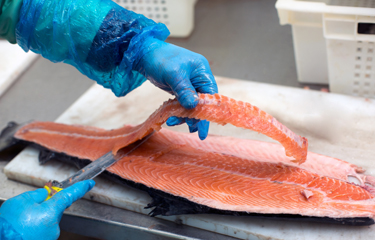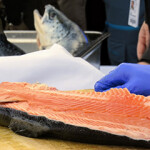Method being developed to turn fish-processing waste into green nylon for clothing

A new process that could see fish-processing waste used to create one of the key components in the production of nylon is being explored by a team of Scottish researchers.
Plastic experts from Impact Solutions, biotechnology researchers from the University of Edinburgh, seafood producer Farne Salmon (part of Labeyrie Fine Foods), and the Industrial Biotechnology Innovation Centre (IBioIC) are using biological enzymes to extract the fatty components of fish waste. Through advanced molecular biology, genetically-modified bacteria can then turn these into a mixture of adipic acid (a precursor to nylon) and other useful byproducts.
The researchers believe the new process could pave the way for a more sustainable, circular approach to the production of adipic acid, which typically involves petrochemicals and processes that can be damaging to the environment. In addition to nylon, adipic acid is used in a range of products including polyurethane-based items such as building insulation, furniture cushioning, cosmetics, lubricants, pharmaceuticals, food additives, and flavorings.
“The project marks the start of an exciting journey to find a sustainable alternative for a key component found in the fabric of our clothes. The initial feasibility study has led us to an exciting juncture where we can begin to see the potential of generating value from a material that would otherwise be discarded,” Impact Solutions Development Manager Simon Rathbone said.
Rathbone said in addition to creating adipic acid, the researchers want to maximize the overall value of the process by looking at other components that can be extracted from the fish waste, such as fatty acids and fish oils.
Farne Salmon is providing the waste used in the feasibility study as part of its commitment to eliminating landfill waste.
“Our mission is to be a more sustainable business managing all aspects and impacts of our daily activities and in particular utilizing in full the scarce resources we impact upon on a daily basis,” Labeyrie Fine Foods Environment, and Projects Manager Angus Forbes said. “Our waste streams have been a major focus in recent years and wherever possible we have found routes to divert them to businesses who have the foresight and technology to utilize them as a raw material for further processing. We are therefore delighted to be involved in this project and look forward to providing further support in the future.”
The researchers noted as much as 492,000 metric tons (MT) of waste is created by the United Kingdom’s fish-processing industry annually.
Photo courtesy of Impact Solutions






Share